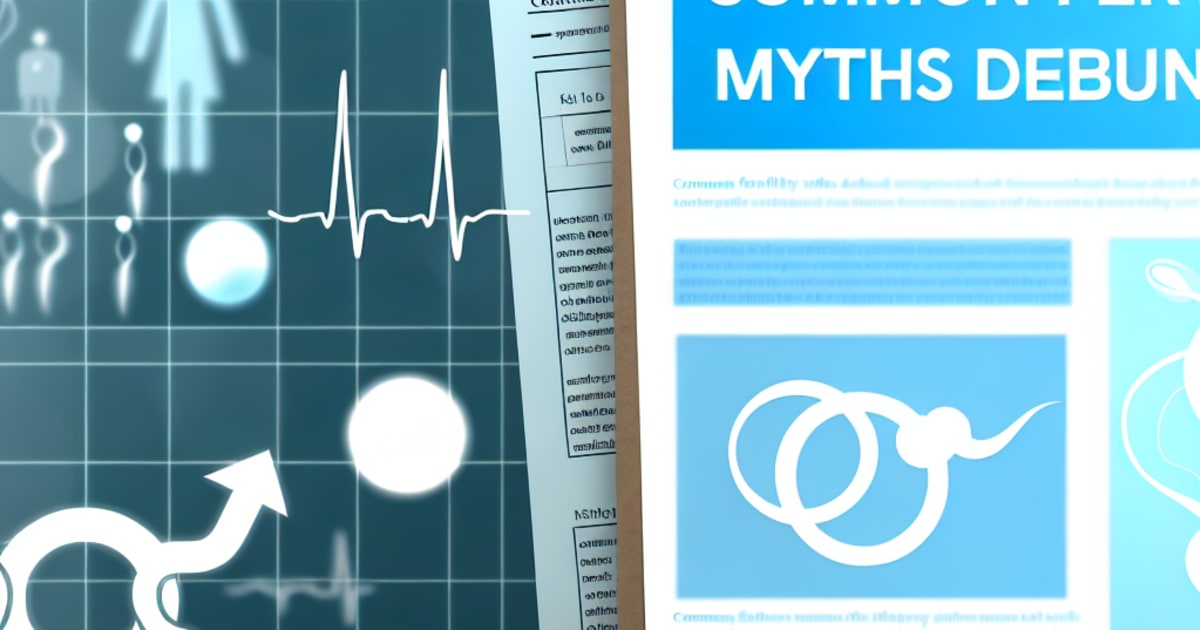
Common Fertility Myths Debunked - Informative Blog Post
Introduction
Fertility and conception are topics that often attract a myriad of myths and misconceptions. These myths can be misleading and often cause unnecessary worry or false hope. In this blog post, we will debunk some of the most common fertility myths and provide scientifically accurate information to help you navigate your fertility journey with confidence.
Common Fertility Myths Debunked
Myth 1: Age is not a major factor in fertility
One common myth is that age doesn't significantly impact fertility. In reality, age is one of the most critical factors affecting a woman's ability to conceive.
- Women are born with a set amount of eggs, and this supply decreases as they age. The quality of these eggs also declines over time.
- Men's fertility also decreases with age, although not as drastically as women's. Older men may experience a decline in sperm quality and quantity.
Myth 2: You can't get pregnant if you have sex during your period
Another myth is that women cannot conceive if they have intercourse during their menstrual period. While the chances are lower, it is still possible, especially in women with shorter menstrual cycles.
- Sperm can survive in the woman's body for up to five days. Therefore, if a woman with a short menstrual cycle has sex towards the end of her period, she could conceive when she ovulates a few days later.
Myth 3: Regular sex guarantees pregnancy
It's also a common belief that having regular sex will ensure pregnancy. However, conception is more complex and depends on various factors such as timing, age, and overall health.
- The timing of intercourse is crucial. A woman is most likely to conceive during her fertile window, which is usually the five days leading up to and including ovulation.
- Health issues, such as Polycystic Ovary Syndrome (PCOS) or male factor infertility, can also affect a couple's ability to conceive.
Fact-Based Fertility Advice
While it's crucial to debunk fertility myths, it's equally important to provide accurate and practical advice on boosting fertility. Here are some evidence-based tips:
Healthy Lifestyle Choices
Maintaining a healthy lifestyle can improve your fertility. This includes:
- Eating a balanced diet
- Regular physical exercise
- Limiting caffeine and alcohol intake
- Avoiding smoking and illegal drugs
Regular Health Check-ups
Regular health check-ups can help identify and address potential fertility issues early.
- Women should have regular gynecological exams, including Pap smears and pelvic exams.
- Men should have regular physical exams, including testicular exams.
Seek Professional Advice
If you have been trying to conceive for over a year without success (or over six months if you're over 35), it might be time to consult a fertility specialist. They can conduct tests to identify potential issues and suggest appropriate treatments.
Remember, every person's fertility journey is unique. It's important to arm yourself with accurate information and seek professional advice when needed. Don't let myths and misconceptions guide your fertility journey.
